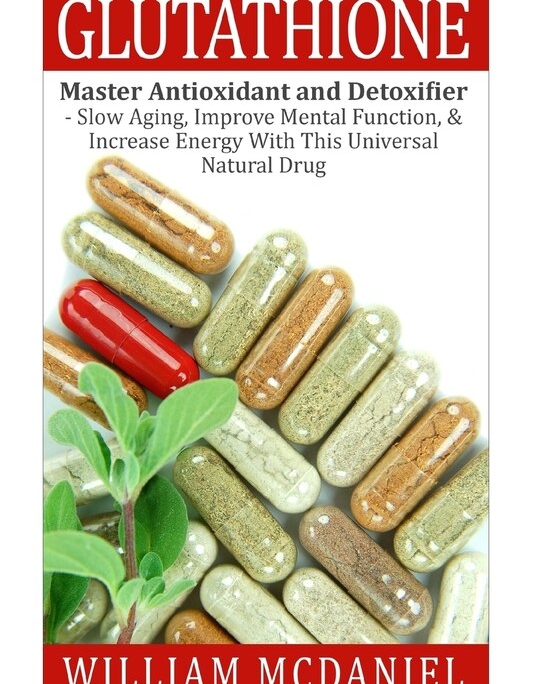Glutathione: The Master Antioxidant Your Body Can’t Live Without
When we talk about nutrients essential for health, most people think of vitamin C, vitamin D, calcium, or iron. But few have heard of glutathione — often called “the master antioxidant.” Unlike most antioxidants that come from food, glutathione is naturally produced by your own body. It plays a key role in detoxification, cell protection, and maintaining overall vitality.
What Is Glutathione?
Glutathione is a small yet powerful molecule made up of three amino acids — glutamine, cysteine, and glycine. It is found in nearly every cell, especially in the liver, where it helps remove harmful toxins and waste products.
Its main function is to neutralize free radicals, the unstable molecules that damage cells and accelerate aging. Because of this, glutathione is often described as the body’s internal “cleaning system,” constantly defending your organs from oxidative stress.
Functions and Health Benefits of Glutathione
-
Powerful Detoxifier
Glutathione binds to heavy metals, chemicals, and environmental toxins, allowing the liver to safely remove them from the body. -
Strengthens Immunity
It helps immune cells (especially white blood cells and lymphocytes) function more efficiently, boosting your body’s ability to fight infections. -
Promotes Youthful Skin and Anti-Aging
Glutathione helps regenerate vitamins C and E — both essential for radiant, healthy skin — and reduces dark spots, wrinkles, and inflammation. -
Protects the Brain and Improves Focus
Adequate glutathione levels reduce oxidative stress in the brain, protecting against memory decline and mental fatigue. -
Supports Energy and Metabolism
Glutathione assists in maintaining healthy mitochondria, the “power plants” of your cells, keeping you energized and active. -
Reduces Risk of Chronic Diseases
Studies link low glutathione levels to conditions such as heart disease, diabetes, Alzheimer’s disease, and certain cancers.
Symptoms of Glutathione Deficiency
Glutathione levels naturally decline with age, and can also drop due to stress, lack of sleep, pollution, smoking, or poor diet. Common symptoms include:
-
Chronic fatigue or low energy
-
Frequent colds, infections, or slow recovery
-
Brain fog or difficulty concentrating
-
Dull or unhealthy-looking skin
-
Muscle weakness or joint pain
-
Sensitivity to chemicals or pollution
-
Poor liver or digestive function
If you notice several of these signs, your antioxidant defense system may be running low.
Foods That Boost Glutathione Naturally
While you can obtain some glutathione from foods, the best strategy is to eat foods that help your body produce more of it.
1. Sulfur-Rich Vegetables
Sulfur is vital for glutathione synthesis. Eat plenty of:
-
Broccoli
-
Kale
-
Cabbage
-
Cauliflower
-
Garlic
-
Onions
2. Vitamin C and E-Rich Foods
These vitamins help recycle and protect glutathione:
-
Citrus fruits (orange, lemon, grapefruit)
-
Kiwi, papaya, strawberries
-
Almonds, sunflower seeds
3. High-Protein Foods (Amino Acid Sources)
Glutathione is made from amino acids, so ensure adequate protein intake:
-
Eggs
-
Fish and poultry
-
Lentils, beans, peas (great for vegetarians)
4. Avocados and Spinach
Excellent direct food sources of glutathione and other antioxidants.
5. Whey Protein
A top source of cysteine, the key building block for glutathione production.
Supplements That Help Boost Glutathione Levels
While a healthy diet supports glutathione production, certain supplements can further enhance your body’s ability to maintain optimal levels — especially for older adults or those exposed to environmental toxins.
1. L-Glutamine
Glutamine is one of the three amino acids needed to make glutathione. It also supports gut health, immunity, and muscle recovery.
Tip: Taking L-glutamine (5–10 g daily) may help boost glutathione levels naturally.
2. N-Acetyl Cysteine (NAC)
NAC is one of the most effective and well-researched supplements for increasing glutathione production. It supplies cysteine, which is the most “rate-limiting” amino acid in the process.
Tip: Typical dosage ranges from 600–1200 mg daily.
3. Alpha-Lipoic Acid (ALA)
ALA not only helps regenerate oxidized glutathione but also supports energy metabolism. It’s especially beneficial for those with diabetes or nerve issues.
4. Selenium
This trace mineral acts as a cofactor for the enzyme glutathione peroxidase, which activates glutathione.
Good sources: Brazil nuts, eggs, and seafood — or a small selenium supplement.
5. Vitamin C and E
They work synergistically with glutathione, helping recycle it back into its active form after neutralizing free radicals.
6. Milk Thistle (Silymarin)
A liver-protecting herb that promotes natural glutathione production and enhances liver detoxification.
Final Thoughts
Glutathione is not just another antioxidant — it’s the body’s chief defender against toxins, aging, and cellular damage. Unfortunately, modern lifestyles, pollution, and stress can all drain your body’s supply.
By maintaining a nutrient-rich diet, managing stress, and considering natural supplements like L-glutamine, NAC, and alpha-lipoic acid, you can keep your glutathione levels high. The result is stronger immunity, clearer skin, sharper focus, and a healthier, more youthful body from the inside out.
Related articles:
1. The Health Benefits of L-Glutamine: A Key to Cellular Vitality and Glutathione Production
2. The Importance of Gut Bacteria to Overall Health
3. The Secret of Burdock Root: A Natural Detoxifier and Longevity Food
4. A Cup of Warm Ginger Tea: Dispelling Chill, Boosting Health
5. Moringa Leaves: The “Super food” Gift from Nature, Unlocking a New Secret Code to Health

